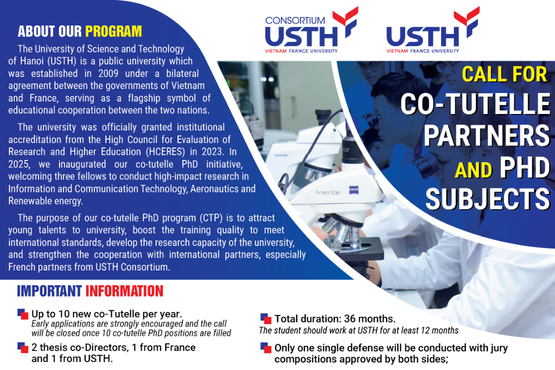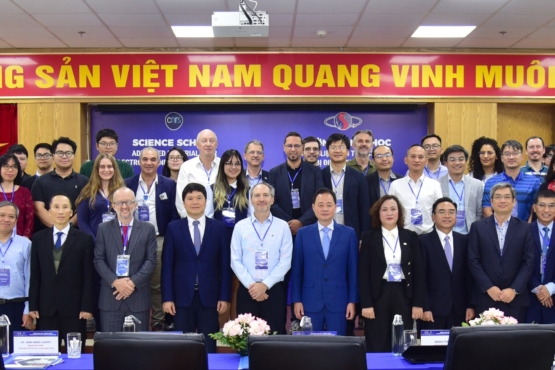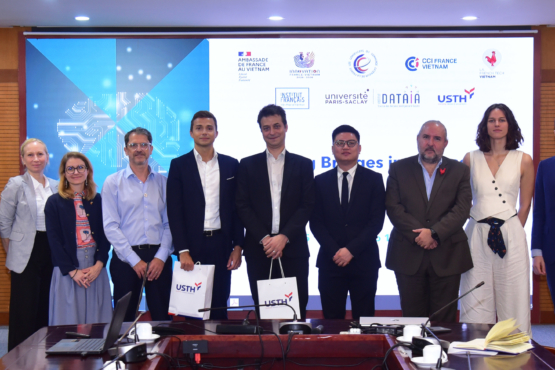On October 8, 2023, USTH hosted an insightful seminar on the topic “Networks, phylogenetic networks, and inferring phylogenetic networks”, featuring Dr. Sungsik Kevin Kong, a postdoctoral research associate at the Wisconsin Institute for Discovery, University of Wisconsin-Madison.
Dr. Kong, who earned his Ph.D. in Evolution, Ecology, and Organismal Biology at the Ohio State University in 2023, has dedicated his research to understanding the evolutionary history and relationships among living organisms. He is particularly focused on developing scalable methods for inferring phylogenetic networks to explore the complexities of reticulate evolution, such as interspecific hybridization, and its impact on current biodiversity.
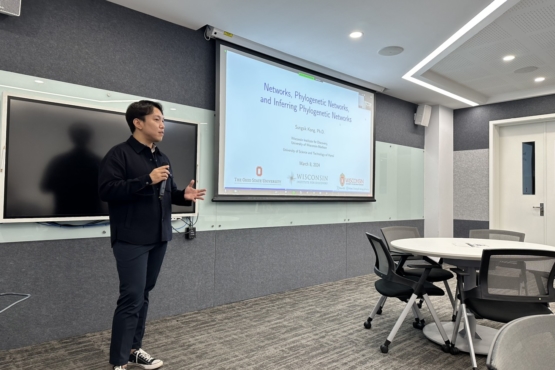
In the seminar, Dr. Kong began by introducing the fundamental concept of phylogenetic networks, essential tools for studying evolution that illustrate the ancestral relationships between species. He then presented various computational methods for inferring these networks.
His sharing primarily concentrated on PhyNEST (Phylogenetic Network Estimation using SiTe patterns), an innovative computational method he developed during his Ph.D. research. Unlike most existing methods that require summarizing data into a set of gene trees, PhyNEST estimates phylogenetic networks directly from sequence alignments. Dr. Kong highlighted how PhyNEST improves computational efficiency and accuracy by utilizing composite likelihood and the entire genomic dataset. The method’s innovative use of hill climbing and simulated annealing algorithms for exploring the network space further demonstrates its advanced capability in addressing complex evolutionary scenarios.
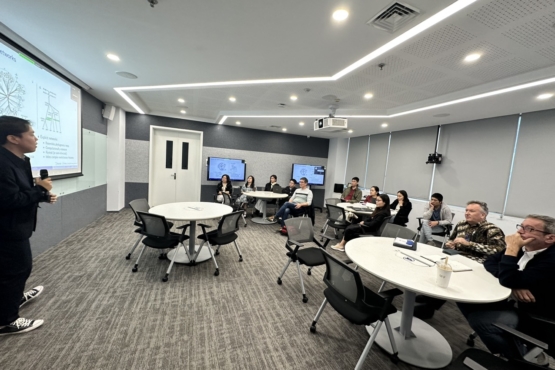
Moreover, Dr. Kong discussed the successful application of PhyNEST in reconstructing the evolutionary relationships of the Papionini primates, a group characterized by extensive introgressive hybridization. He also outlined several ongoing projects and potential future research directions, underscoring the practical applications and implications of his research.
Following the presentation, Dr. Sungsik Kevin Kong addressed the questions from the participants and thanked them for attending the seminar.

